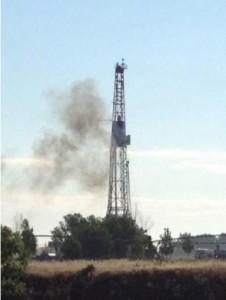
DEMOCRATS
REPUBLICANS
95%
5%

(D) J. Hickenlooper*
(R) Somebody
80%
20%


(D) M. Dougherty
(D) Jena Griswold
60%↑
40%↑


(D) Brianna Titone
(R) Kevin Grantham
(D) Jerry DiTullio
60%↑
30%
20%↓

(D) Diana DeGette*
(R) Somebody
90%
2%

(D) Joe Neguse*
(R) Somebody
90%
2%

(R) Jeff Hurd*
(D) Somebody
80%
40%

(R) Lauren Boebert*
(D) Somebody
90%
10%

(R) Jeff Crank*
(D) Somebody
80%
20%

(D) Jason Crow*
(R) Somebody
90%
10%

(D) B. Pettersen*
(R) Somebody
90%
10%

(R) Gabe Evans*
(D) Manny Rutinel
(D) Yadira Caraveo
45%↓
40%↑
30%

DEMOCRATS
REPUBLICANS
80%
20%

DEMOCRATS
REPUBLICANS
95%
5%

(D) J. Hickenlooper*
(R) Somebody
80%
20%


(D) M. Dougherty
(D) Jena Griswold
60%↑
40%↑


(D) Brianna Titone
(R) Kevin Grantham
(D) Jerry DiTullio
60%↑
30%
20%↓

(D) Diana DeGette*
(R) Somebody
90%
2%

(D) Joe Neguse*
(R) Somebody
90%
2%

(R) Jeff Hurd*
(D) Somebody
80%
40%

(R) Lauren Boebert*
(D) Somebody
90%
10%

(R) Jeff Crank*
(D) Somebody
80%
20%

(D) Jason Crow*
(R) Somebody
90%
10%

(D) B. Pettersen*
(R) Somebody
90%
10%

(R) Gabe Evans*
(D) Manny Rutinel
(D) Yadira Caraveo
45%↓
40%↑
30%

DEMOCRATS
REPUBLICANS
80%
20%

DEMOCRATS
REPUBLICANS
95%
5%
 March 29, 2019 03:56 PM UTC
March 29, 2019 03:56 PM UTC 15 Comments
15 Comments
I saw nothing contentious in the amendments, either Senate or House. Here's to a minimum of shenanigans as it moves back over to the Senate for a final vote.
Who is Bill?
All I've been hearing about the past few weeks is Bill, Bill, Bill.
Who the heck is Bill?
Bill is short for William, of course.
William Stalin? . . .
No, Bill as in "Dio is a friend of Bill W."
C'mon, Emily….pay attention.
"major, last minute changes"…?
Here is a big red flag…stop! Make sure the bill does not receive a final vote until all those are identified and fully explained.
We have been burned that way before.
I didn't find anthing that major, Duke. I think half of the House's textual changes amounted to ensuring that local governments could only effect changes within their jurisdictions. The composition of the Commission was altered (or re-worded) further, and there is now the ability to convene a technical advisory board to assist (either side?) in evaluations. Also, clarifications to tighten up the regulation of peripheral sites and operations were made.
I think this is a massive step in the right direction from where we are. It's gone through rigorous review, hearings, and revision; no-one can truthfully say this was either one-sided or rushed. Everyone involved deserves a lot of credit for the work.
Thanks for that insight, PR.
I hope the current drivers of the bus recognize the true, bottomless, mendacity to be found at every turn when dealing with the industry. Now that it seems this legislation is about to become law, the industry will throw its full weight behind gumming up implementation until their Republican operatives can figure out something else.
At this moment, oil and gas lobbyists, apologists, employees, and generally anyone who feeds at that table, are fanning out and talking up the resistance at the county and municipal level.
For Gwen, Matt, Pete, Leslie, the Tres Miguelitos, and so many thousands of others who have given a piece of their life to the fight against the injustices of oil and gas extraction, a heartfelt thank you to those who persist and have sealed this victory…
and a reminder…
It ain't over. Remember the lesson of Gov. Frackenlooper.
That's right – it's never over.
Did anyone else receive this text on Thursday, like I did: "Tell your legislators to vote no on the extremist effort to shut down CO oil + nat gas industry, costing 232,000 jobs + $7B for community." I replied to it saying, "not a chance." I guess they had a little problem narrowing their list to "persuadables."
That trick is long in the tooth here in Colorado. Reminded me of the post-Amendment 37 days (2004) when Xcel, Intermountain REA and Tri-State did everything possible to slow the implementation of the renewable mandate – all with howling cries about costing CO consumers billions of dollars and making our grid unreliable. That mindset lasted all the way through the Ritter years, into Hickenlooper, culminating in the ridiculous War on Rural Colorado campaign (mostly funded by Tri-State – who is all but broke now because they clung to coal-fired power; on the other hand Xcel, who went all-in on renewables is printing money and delivering low-cost power to its consumers).
They will attack Gov. Polis relentlessly. Luckily, Gov. Polis is indepedently wealthy, and his career, unlike that of Bill Ritters', cannot be threatened by the Lords of the Petroleum Club. They may very well fund the Nazi interests who want to recall him. I wouldn't be surprised.
But, again, attaboys to the guv, the legislature, environmental community, and the Colorado communities that have been so stalwart in the defense of their homes and their loved ones.
Any possibility that one of those amendments gave limited voting rights to the sage grouse, allowing them local control over their range?
Perhaps the birds should incorporate.
Corporate birds are people, too. Thanks, Mitt